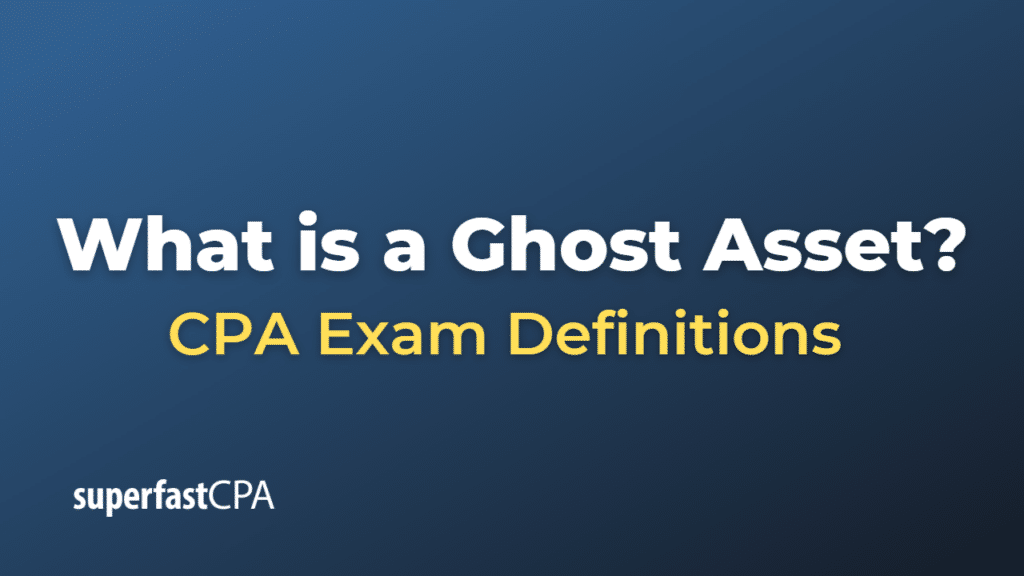Ghost Asset
A ghost asset is a term used in asset management to refer to an asset that is found on a company’s books, but is actually no longer owned or used by the company. These assets are “ghosts” because they appear in the accounting records, but they don’t exist in the company’s actual operations or physical assets.
Ghost assets can come into existence due to several reasons such as theft, loss, disposal without proper documentation, or when an asset is fully depreciated but still in use and not removed from the books.
Ghost assets can have several negative impacts on a company’s financial statements. These can include overstated asset values and profits, inaccurate depreciation expense, and an inaccurate picture of a company’s financial position. It can also lead to insurance overpayments, as companies may be paying insurance premiums for assets they no longer own or use.
Regular inventory checks and asset audits are ways for companies to identify and eliminate ghost assets. Accounting systems should also be updated regularly to reflect the disposal or loss of assets.
Example of a Ghost Asset
Let’s consider a hypothetical example of a ghost asset:
ABC Manufacturing owns 50 machines that they use in their production process. Each machine has an expected life of 10 years. After 10 years, the machine is fully depreciated and its book value is zero, but some machines continue to operate for a few more years.
Due to an oversight, ABC Manufacturing forgets to remove Machine #32 from their list of assets after it breaks down beyond repair at the 11th year. Meanwhile, the machine has been scrapped, but the accounting records still show that ABC Manufacturing owns 50 machines.
In this case, Machine #32 has become a ghost asset. It is still listed in the company’s accounting records, even though it no longer exists in the company’s physical inventory.
This error leads to several problems:
- ABC Manufacturing’s asset values are overstated, as the machine is no longer usable.
- The company’s profits could be overstated because they didn’t record a loss for the disposal of the machine.
- Insurance costs could be higher than necessary because premiums may still be paid on the scrapped machine.
To prevent such issues, ABC Manufacturing should conduct regular physical audits of their assets and ensure their accounting records match the actual count and condition of their physical assets.













